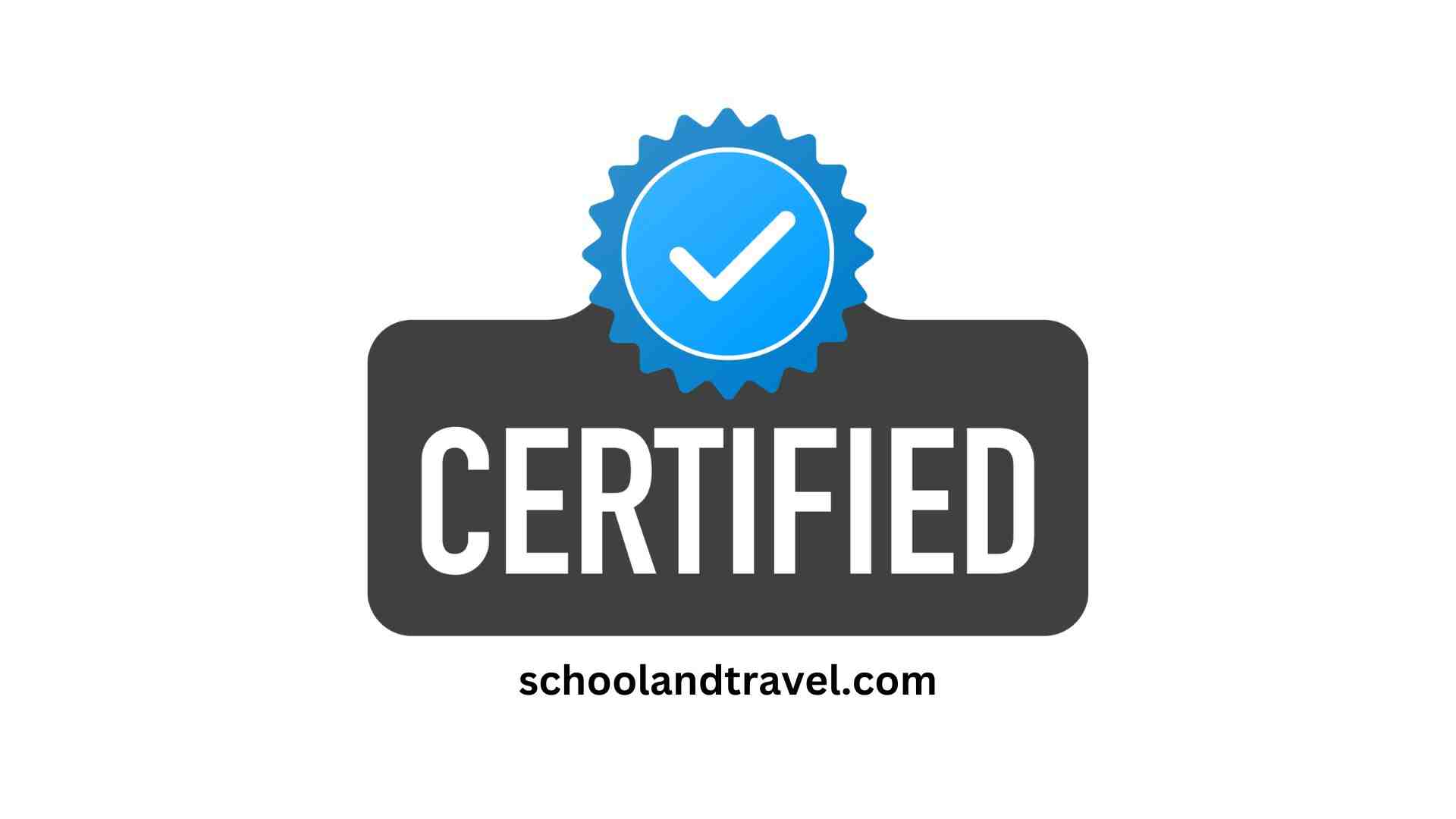In a world characterized by constant advancements and evolving knowledge, the pursuit of continuing education has become a cornerstone of professional growth and development.
Continuing Education Credits (CECs) Certification stands as a testament to an individual’s commitment to staying current, enhancing skills, and contributing to the ever-evolving landscape of their field.
This comprehensive article will explore Continuing Education Credits Certification’s significance, benefits, and avenues.
We will also highlight how it empowers professionals to thrive in their careers while embracing a culture of lifelong learning.
What is a Continuing Education Credits Certification?
Continuing Education Credits Certification is a formal recognition awarded to individuals who complete a prescribed educational activity to enhance their knowledge, skills, and competencies in a specific field.
This certification proves that professionals have participated in structured learning experiences beyond their initial educational qualifications, demonstrating their dedication to staying relevant and proficient.
CEC certification programs are widely offered across various industries and sectors, including healthcare, finance, technology, education, engineering, and more.
They encompass diverse formats, including workshops, seminars, webinars, conferences, online courses, and self-directed learning activities.
The emphasis is on learning experiences that contribute directly to the participant’s field of expertise and enables them to adapt to industry trends, technological developments, and best practices.
Reasons For Continuing Education Credits Certification
Continuing Education Credits Certification holds immense significance for professionals seeking to remain competitive and effective in their respective fields.
Here are some compelling reasons why pursuing CECs Certification is a valuable endeavor:
1. Lifelong Learning Culture
CEC certification fosters a culture of lifelong learning, encouraging professionals to embrace continuous improvement and stay abreast of developments in their field.
2. Enhanced Competence
The CEC certification program allows participants to deepen their knowledge and refine their skills, enhancing their competence and confidence in their roles.
3. Professional Credibility
CEC certification is a visible mark of professionalism and dedication to ongoing skill development. It demonstrates a commitment to maintaining the highest standards of practice.
4. Career Advancement
CEC-certified professionals are often better positioned for career advancement opportunities. CEC certification can open doors to promotions, leadership roles, and expanded responsibilities.
5. Industry Relevance
Industries constantly evolve due to technological advancements, regulatory changes, and market trends. CEC certification ensures that professionals remain current and adaptable to these shifts.
6. Meeting Regulatory Requirements
In some industries, CECs Certification may be a requirement to maintain licensure or meet regulatory standards, ensuring ongoing compliance.
7. Demonstrating Commitment to Employers
CEC certification reflects an individual’s dedication to adding value to their organization by staying up-to-date with industry best practices and contributing to its success.
8. Fostering Innovation
Continuing education exposes professionals to new ideas, perspectives, and approaches, fostering a culture of Innovation within their field.
9. Personal Fulfilment
Achieving a CEC Certification is a source of personal satisfaction and achievement, highlighting a commitment to personal and professional growth.
Components of Continuing Education Credits Certification
CEC certification programs encompass various components designed to provide a well-rounded and meaningful learning experience:
1. Educational Content
CEC certification programs offer educational content that is relevant, up-to-date, and aligned with industry trends.
This content may be delivered through lectures, presentations, case studies, and hands-on exercises.
2. Interactive Learning
Many CEC Certification programs emphasize interactive learning, including group discussions, workshops, simulations, and practical exercises.
3. Networking Opportunities
CEC certification programs often facilitate networking events and activities, allowing participants to connect with colleagues, industry experts, and mentors.
4. Assessments and Evaluation
Some programs include assessments, quizzes, or evaluations to gauge participants’ comprehension of the material and ensure effective learning outcomes.
5. Industry Experts
CEC certification programs may feature presentations and insights from industry experts, providing valuable perspectives and real-world insights.
6. Practical Application
Participants are encouraged to apply their newly acquired knowledge and skills to real-world scenarios, ensuring practical relevance.
7. Continuing Education Credits
Upon completing the program, participants earn Continuing Education Credits (CECs), typically measured in hours, and reflect the amount of time invested in the learning activities.
How to Get the Continuing Education Credits Certification
1. Program Selection
Research a CECs Certification program that aligns with your professional goals and interests.
2. Application
Complete the application process, which may involve submitting documentation, paying fees, and meeting eligibility criteria.
3. Engagement
Participate in the program, attend sessions, complete assignments, and engage in interactive learning activities.
4. Assessment
If applicable, prepare for and complete assessments or evaluations to demonstrate your comprehension of the material.
5. Networking
Take advantage of the certification program’s networking opportunities to connect with peers and experts.
6. Completion
You will receive your certification and the associated Continuing Education Credits upon completing the program.
7. Maintenance
A CEC certification sometimes requires ongoing maintenance, which may involve earning additional CECs through further education and professional development.
Frequently Asked Questions (FAQs) on CEC Certification
The jobs currently paying the most in the world are anaesthesiologists, oral and maxillofacial surgeons, orthodontists, psychiatrists, and nurse anesthetists.
The jobs with the worst salaries in the US are those of fast food and counter workers, fast food cooks, amusement park attendants, and shampooers.
The best-paying unskilled jobs are sales representative, delivery driver, tax preparer, administrative assistant, construction worker, and property manager.
The jobs in demand in the UK are software development, cyber security, graphics design, sales assistant, and architects.
Conclusion
Continuing Education Credits Certification is a powerful vehicle for advancing professional growth, enhancing skills, and staying relevant in a rapidly changing world.
Possessing several CECs can be highly beneficial in a lot of professional environments.
With a focus on lifelong learning, certified individuals can adapt to industry shifts, contribute effectively to their organizations, and achieve personal satisfaction from their ongoing education journey.
By pursuing Continuing Education Credits Certification, professionals signal their commitment to excellence and dedication to harnessing knowledge to achieve lasting success.
Awesome one; I hope this article answers your question.
Editor’s Recommendations:
- Is Online Forklift Certification Legit? (Yes/No, Worth, FAQs)
- How To Get ASE Certification (Benefits, Steps, FAQs)
- 9 Best Certifications For Remote Jobs (Tips, FAQs)
- How To Become A CIMI (Certification, Cost, FAQs)
- 15 Free Online Government Certifications In 2023 (FAQs)
- Post-doctoral Certificate (Meaning, duration, careers)
- Bonafide Certificate (Meaning, Types, Uses, Application)
- What is 19A Certification? How to Get (Steps, Renew, FAQs)
- What is RA Certification? How to Get it (Benefits, FAQs)
- What is CPHQ Certification? How to Get it (Steps, FAQs)
- Certificate vs. Degree – Which is Better?
- How to make friends as an Introvert in College
If you find this article good, please share it with a friend.





